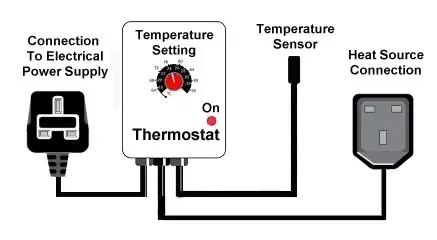As the world grapples with heightened environmental concerns and spiraling energy costs, the need for sustainable and efficient heating and cooling solutions has never been more pressing. Fortunately, in this quest for innovation, understanding how heat pumps work offers a versatile and eco-friendly alternative to conventional systems that have long dominated the market.
This ingenious mechanism allows heat pumps to provide both heating and cooling, effectively reversing the traditional refrigeration cycle. According to the U.S. Department of Energy, heat pumps can reduce energy consumption for heating by up to 50% compared to traditional electric resistance heating and up to 30% compared to natural gas furnaces. Moreover, they can provide cooling with up to 50% energy savings compared to traditional window or split-system air conditioners.
In this article, we will discuss the intricacies of heat pump technology, exploring its various types, operational principles, and the factors that influence its efficiency. We will also examine the compelling environmental benefits of heat pumps, their long-term cost-effectiveness, and the government incentives available to encourage their adoption.
Table of contents
- How Do Heat Pumps Work?
- What Are The Different Types Of Heat Pump Systems?
- What Factors Affect The Efficiency Of Heat Pumps?
- How Do Heat Pumps Compare To Traditional Heating And Cooling Systems?
- What Are The Environmental Benefits Of Heat Pumps?
- What Are The Major Disadvantages of Heat Pumps?
- What Are The Government Incentives And Rebates Available For Heat Pumps?
- How Can I Determine If A Heat Pump Is Right For My Home Or Business?
- FAQs
- Conclusion
- References
- Recommedations
How Do Heat Pumps Work?
Heat pumps, ingenious devices that revolutionized heating and cooling technology, operate on the fundamental principle of heat transfer. Heat pumps operate by moving heat from one location to another, utilizing a special refrigerant fluid to absorb heat from a low-temperature source and transfer it to a higher-temperature destination. This principle, similar to how a refrigerator removes heat from food to keep it cool, is applied in heat pumps to provide heating and cooling for homes and buildings.
Read also: 10 Best Tools For HVAC In 2024
The Refrigeration Cycle
The refrigeration cycle, the cornerstone of heat pump operation, comprises four key stages:
- Evaporation: The refrigerant, in a liquid state, enters the evaporator, a heat exchanger that absorbs heat from the low-temperature source. This heat causes the refrigerant to evaporate, transforming it into a gas.

- Compression: The gaseous refrigerant is then drawn into the compressor, where it undergoes compression, increasing its pressure and temperature.

- Condensation: The high-pressure, high-temperature refrigerant gas passes through the condenser, another heat exchanger that releases heat to the higher-temperature destination. As the refrigerant cools, it condenses back into a liquid state.

- Expansion: Before the refrigerant returns to the evaporator, it passes through the expansion valve, where its pressure and temperature are reduced. This allows the refrigerant to absorb heat effectively during the next evaporation cycle.

See also: Ph.D. Scholarship at the University of Hull in the UK
What Are The Different Types Of Heat Pump Systems?
Heat pumps can be categorized into three main types based on the heat source they utilize:
- Air-source heat pumps (ASHPs): Air-source heat pumps (ASHPs) are the most common type of heat pump system, extracting heat from the ambient air. They are versatile and can operate in a wide range of climates, but their efficiency can diminish in extreme cold or heat.

- Ground-source heat pumps (GSHPs): Ground-source heat pumps (GSHPs), also known as geothermal heat pumps, harness the relatively stable temperature of the ground as a heat source. They offer high efficiency, especially in colder climates, as the ground temperature remains relatively constant throughout the year.

- Water-source heat pumps (WSHPs): Water-source heat pumps (WSHPs) extract heat from nearby water sources, such as lakes, ponds, or groundwater. They are suitable for coastal regions or areas with access to water bodies. However, their efficiency can be affected by the water temperature and the quality of the water source.

What Factors Affect The Efficiency Of Heat Pumps?
Several factors can influence the efficiency of heat pumps, including:
1. Climate Conditions: Heat pumps perform best in mild climates with moderate temperature swings. In extremely cold or hot climates, the efficiency of heat pumps can decrease due to the increased demand for heating or cooling.
2. Heat Pump Size: The size of the heat pump should be carefully matched to the heating and cooling needs of the building. An oversized heat pump will short-cycle frequently, reducing efficiency. Conversely, an undersized heat pump may struggle to meet the building’s demands, leading to increased energy consumption.
3. Regular Maintenance: Regular maintenance, including filter cleaning and refrigerant checks, is crucial for maintaining the efficiency and lifespan of the heat pump system. Dirty filters can restrict airflow, reducing heat transfer and increasing energy consumption. Proper refrigerant levels ensure optimal heat transfer and system performance.
4. Defrost Cycle: In cold climates, heat pumps require a defrost cycle to remove ice that accumulates on the outdoor unit. The defrost cycle consumes energy, and frequent defrost cycles can reduce overall efficiency.
5. Energy Usage Patterns: Understanding the building’s energy usage patterns, particularly peak demand periods, can help optimize heat pump operation. Adjusting thermostat settings during peak hours can reduce strain on the system and improve overall efficiency.
6. Refrigerant Type: The type of refrigerant used in the heat pump system can also affect efficiency. Newer refrigerants with lower global warming potential (GWP) may offer improved energy efficiency while minimizing environmental impact.
7. Installation Quality: Proper installation of the heat pump system is essential for optimal performance. Incorrect refrigerant charge, inadequate insulation, or improper placement of outdoor units can all contribute to reduced efficiency and increased energy consumption.
How Do Heat Pumps Compare To Traditional Heating And Cooling Systems?
Comparing heat pumps to traditional heating and cooling systems in terms of cost and energy consumption reveals distinct advantages for heat pumps.
Upfront Cost
Heat pumps typically have a higher upfront cost compared to traditional heating and cooling systems. This is primarily due to the more complex technology and components involved in heat pump systems. Despite the higher upfront cost, heat pumps often offer lower long-term operating costs due to their superior energy efficiency.
Heating Efficiency
Heat pumps can provide heating with up to 60% less energy consumption compared to electric resistance heating and up to 30% less energy consumption compared to natural gas furnaces. This translates into significant cost savings, especially in regions with colder climates.
Cooling Efficiency
Heat pumps also offer impressive cooling efficiency compared to traditional window or split-system air conditioners. They can provide cooling with up to 50% energy savings, reducing electricity consumption and associated costs during warmer months.
Overall Cost-Effectiveness
When considering the total cost of ownership, including upfront costs, maintenance expenses, and long-term energy consumption, heat pumps often prove to be a more cost-effective solution in the long run. This is particularly true for homeowners and businesses with high heating and cooling needs.
Environmental Benefits
In addition to cost savings, heat pumps offer significant environmental benefits. Their reduced energy consumption translates into lower greenhouse gas emissions associated with electricity generation. Moreover, heat pumps do not emit harmful pollutants into the air, unlike traditional combustion-based heating systems.
Government Incentives
To promote the adoption of heat pumps, many governments and energy utilities offer incentives and rebates to offset the upfront cost. These incentives can significantly reduce the initial investment and make heat pumps more accessible to homeowners and businesses.
Read also: 10 Best Tools for Grilling in 2024 | Best Tools
What Are The Environmental Benefits Of Heat Pumps?
Heat pumps contribute to environmental sustainability in several ways:
1. Reduced Greenhouse Gas Emissions
Heat pumps significantly reduce greenhouse gas emissions, particularly carbon dioxide (CO2), compared to traditional heating and cooling systems. This is because heat pumps primarily rely on electricity, and as the electricity grid transitions towards renewable energy sources, heat pumps become increasingly carbon-neutral.
2. Preserved Natural Resources
Heat pumps help conserve natural resources by reducing reliance on fossil fuels for heating and cooling. Traditional systems often burn fossil fuels like natural gas or oil, depleting these finite resources and contributing to air pollution.
3. Improved Air Quality
Unlike combustion-based heating systems that emit harmful pollutants, heat pumps do not release pollutants into the air. This contributes to cleaner air quality, reducing respiratory illnesses and improving overall public health.
4. Reduced Reliance on Refrigerants
Heat pumps generally use refrigerants with lower global warming potential (GWP) compared to traditional refrigerants. This minimizes the environmental impact of potential refrigerant leaks.
5. Enhanced Energy Efficiency
Heat pumps operate with high energy efficiency, consuming significantly less electricity than traditional heating and cooling systems. This translates into lower energy consumption and reduced strain on the power grid.
6. Sustainable Heating and Cooling Solutions
Heat pumps offer a sustainable approach to heating and cooling buildings, minimizing environmental impact and promoting energy conservation. They align with the global transition towards a greener and more sustainable future.
What Are The Major Disadvantages of Heat Pumps?
Despite their numerous advantages, heat pumps also have some drawbacks that should be considered before deciding to install them. Here are the major disadvantages of heat pumps:
- Higher Upfront Cost: Heat pumps typically have a higher upfront cost compared to traditional heating and cooling systems due to the more complex technology and components involved. This initial investment can be a deterrent for some homeowners or businesses.
- Reduced Efficiency in Extreme Temperatures: Heat pumps can experience a decline in efficiency in extremely cold or hot climates. In very cold weather, the heat pump may need to rely on supplemental heat sources, such as electric resistance heating, to maintain comfortable indoor temperatures.
- Potential for Defrost Cycles: In cold climates, heat pumps require a defrost cycle to remove ice that accumulates on the outdoor unit. These defrost cycles can consume energy and reduce overall efficiency.
- Reliance on Electricity: Heat pumps rely on electricity for operation, and their performance can be affected by power outages or disruptions in the electricity grid. This can be a concern in areas with unreliable electricity infrastructure.
- Maintenance Requirements: While heat pumps are generally low-maintenance systems, regular upkeep is essential for optimal performance and longevity. This includes filter cleaning, refrigerant checks, and occasional professional servicing.
- Suitability for Specific Climates: Heat pumps are most effective in mild climates with moderate temperature swings. In extreme climates, their efficiency may decrease, and they may not be the most economical choice.
- Dependence on Qualified Installers: Proper installation is crucial for optimal heat pump performance. Ensure you hire a qualified and experienced HVAC contractor to ensure proper installation and avoid potential issues.
See also: Top 15 PhD Scholarships for Fishery Students In 2024
What Are The Government Incentives And Rebates Available For Heat Pumps?
To encourage the adoption of heat pumps and promote energy efficiency, governments, and energy utilities around the world offer various incentives and rebates to offset the upfront cost of heat pump installation. These incentives can significantly reduce the financial burden of switching to heat pumps, making them more accessible to homeowners and businesses.
Federal Incentives
In the United States, the federal government offers several tax credits and incentives for heat pumps. These include:
- Residential Clean Energy Credit: This credit provides a tax deduction of up to 26% of the cost of qualified heat pump installations.
- High-Efficiency Electric Home Rebate Act (HEERA): This act provides rebates of up to $8,000 for low-income households that install heat pumps.
- Energy Star Homes: This program offers incentives for builders who construct homes that meet high energy efficiency standards, including the use of heat pumps.
State and Local Incentives
Individual states and municipalities also offer incentives and rebates for heat pumps. These incentives vary widely, but they often include:
- Tax credits or deductions
- Rebate programs
- Low-interest financing options
- Performance-based incentives
Utility Incentives
Many energy utilities also offer incentives to encourage their customers to install heat pumps. These incentives can include:
- Rebates
- Bill credits
- Low-interest financing options
- Free energy audits
To find out about the specific incentives and rebates available in your area, you can visit the websites of your state government, local energy utility, and the U.S. Department of Energy. You can also consult with a qualified HVAC contractor who can provide guidance on the available incentives and help you navigate the application process.
How Can I Determine If A Heat Pump Is Right For My Home Or Business?
Determining whether a heat pump is the right choice for your home or business depends on several factors, including climate, building characteristics, energy usage patterns, and available heat sources. Here’s a comprehensive guide to help you make an informed decision:
1. Assess Your Climate
Heat pumps are most effective in mild climates with moderate temperature swings. In extremely cold or hot climates, their efficiency may decrease. Check your average annual temperatures and consult with an HVAC professional to determine if a heat pump is suitable for your climate.
2. Evaluate Your Building’s Energy Efficiency
The energy efficiency of your building plays a crucial role in heat pump performance. Well-insulated and sealed buildings with efficient windows and doors minimize heat loss and gain, allowing the heat pump to operate more effectively. Consider upgrading insulation, sealing air leaks, and replacing old windows before installing a heat pump.
3. Analyze Your Energy Usage Patterns
Understand your building’s heating and cooling needs, particularly peak demand periods. If your energy consumption is high, a heat pump can provide significant savings. However, if your usage is relatively low, the upfront cost may not be justified immediately.
4. Consider Available Heat Sources
If you’re considering an air-source heat pump, ensure your location has sufficient ambient air temperature for efficient operation. For ground-source heat pumps, assess the feasibility of installing underground piping. Water-source heat pumps require access to a nearby water source, such as a lake or pond.
5. Consult Qualified HVAC Professionals
Seek guidance from reputable HVAC contractors who specialize in heat pump installation and servicing. They can assess your specific needs, recommend the most suitable heat pump system, and provide accurate cost estimates.
6. Consider Long-Term Cost-Effectiveness
While the upfront cost of a heat pump may be higher than traditional systems, long-term energy savings often outweigh the initial investment. Factor in potential energy savings and reduced maintenance costs when making a decision.
See the 17 Best Free Online Breastfeeding Classes | 2024 List
FAQs
Heat pumps are primarily used for heating and cooling residential and commercial buildings. However, they also have applications in industrial processes, agricultural settings, and even hot water heating.
Regular maintenance, including filter cleaning and refrigerant checks, is essential to ensure optimal performance and longevity of your heat pump system.
Many governments and energy utilities offer incentives and rebates to encourage the adoption of heat pumps due to their energy efficiency and environmental benefits.
Geothermal systems, also known as ground-source heat pumps, offer even higher efficiency and performance compared to air-source heat pumps. However, they require a larger upfront investment due to the installation of underground piping.
With proper maintenance, heat pumps can last for 10-15 years or even longer.
Conclusion
Heat pumps prove human ingenuity, harnessing the power of nature to provide efficient and sustainable heating and cooling solutions. As we strive toward a greener future, heat pumps are poised to play an increasingly significant role in reducing our reliance on fossil fuels and minimizing our environmental impact.
References
- iea.org – How a heat pump works
- nationalgrid.com – How do heat pumps work?





